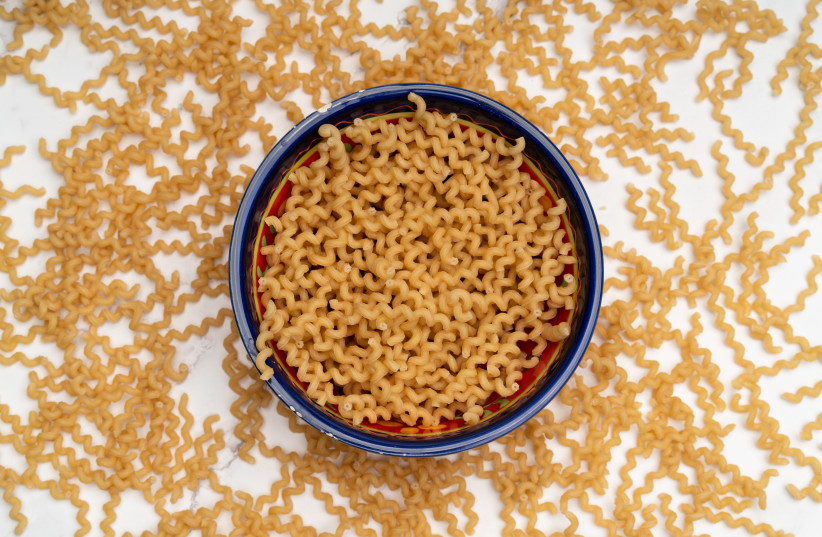Have carbohydrates been unfairly blamed for causing obesity? - Israeli study

The study carried out by Rambam researchers found that there is no connection between the amount of insulin in children and their tendency to obesity.
Carbohydrates have taken a lot of flak in recent years, but they are not all bad and are not necessarily responsible for causing obesity, according to a new study at Rambam Healthcare Campus in Haifa.
Simple carbs like white bread, pasta and rice, corn syrup and all types of sugar – whose beneficial nutrients have been eliminated – are digested quickly.
The study was conducted by Rambam researchers led by Dr. Rana Halloun, a senior endocrinologist in the pediatrics department of Rambam’s Ruth Children’s Hospital, and has just been published in the Journal of Clinical Endocrinology and Metabolism under the title “Adipose tissue insulin resistance is not associated with changes in the degree of obesity in children and adolescents.”
She and her colleagues argue that their work undermines the prevailing theory about the connection among a high-carbohydrate diet, weight gain and the obesity epidemic.
They found that there is no connection between the amount of insulin in children and their tendency to obesity, and no connection was found between the sensitivity of adipose tissue (body fat) to insulin and weight gain. “The conclusion that follows from this is that weight gain is linked to the number of calories consumed, and apparently in a low-carb diet, fewer calories are ultimately consumed,” she said.
Carrying out the research
The study, which followed 600 overweight children with an average age of 12 and an average weight of over 80 kilos for two years, reinforced the notion that it is not important whether the source of the calories is in carbohydrates or other food components and makes it clear that the number of calories in each meal is what determines whether you gain weight or not.
Obesity and being overweight is one of the major health problems of the developed world, with increasing rates of children and adolescents suffering from excess weight and the various medical problems arising from it.
The causes of obesity are an important target for research, with the goal being to better understand the mechanisms that play a role in obesity in order to improve dealing with the phenomenon, either with the help of developing new drugs or through more accurate dietary recommendations.
Today there are two leading theories on the question of what causes weight gain, Halloun explained. “The most accepted assumption hangs obesity on the energy balance – we live in a world with many stimuli and a lot of availability of fast food and processed food. Because of this, we eat more, and at the same time, we also move less and expend less energy. Thus, when we take in more calories and expend less, we gain weight.”
A second theory focuses on the activity of adipose tissue and the effect of certain types of foods on weight gain,” Halloun added. “According to this theory, when we eat food high in carbohydrates, it is quickly absorbed into the blood and causes weight gain sharp in the blood sugar level, which causes an increased secretion of insulin. Insulin is the substance that allows the body's cells to absorb the sugar into them to use it as fuel.”
But according to this idea, fat tissue cells are especially sensitive to insulin, and in response to an increase in the insulin level, the fat cells absorb the sugar faster than other cells and turn it into fatty molecules.
As a result, blood sugar levels drop again at a rapid rate, causing the body to recognize the drop in sugar level as a lack of food and trigger the feeling of hunger again. Then we go back to eating more than we need, with the difference accumulating as extra body fat. Therefore, according to this theory, a high-carb diet is more fattening than a high-protein diet.
Several assumptions are derived from the theory. The first is that the higher the level of insulin in the blood, the greater the tendency to obesity. To find out if this theory is true, together with her colleague Prof. Ram Weiss who is a global expert in the field of obesity, Halloun conducted sugar-loading tests for the children participating in the study and tested the insulin levels in their blood.
“We found that there is a very large variation in the insulin levels. Some of the children had normal insulin levels and some very high, she explained. “What was not found was any relationship between the different insulin levels and the degree of weight gain in the two years after the test. We found that insulin is not a measure that predicts obesity.”
Does lower blood sugar lead to eating more?
Similarly, the theory also assumes that those who will have lower blood sugar levels after eating will be more inclined to eat again and therefore gain weight. To examine this, the team divided the children into those whose blood was found to have low sugar levels after sugar loading and those whose blood had high sugar levels. Again, no difference was found in the tendency to gain weight in the two years of follow-up between the two groups.
They then sought to conduct a more in-depth examination of the function of the fat cells and their possible role in the obesity process. “We wanted to check if there is a connection between the degree of sensitivity of the fat cells to insulin and obesity.
"If children’s fat tissue is more sensitive to insulin and therefore more inclined to absorbing the sugar from the blood and turning it into fat – as the theory assumes – the child is indeed more likely to gain weight. Even in this case, they found no connection between the degree of sensitivity of the adipose tissue to insulin and the weight gain.”
There is a need for follow-up studies to examine the question over a longer period of time, Halloun concluded. “But the findings undermine the correctness of the theory that emphasizes the role of carbohydrates and fat tissue in the process. degree of obesity in children and adolescents.”
Jerusalem Post Store
`; document.getElementById("linkPremium").innerHTML = cont; var divWithLink = document.getElementById("premium-link"); if (divWithLink !== null && divWithLink !== 'undefined') { divWithLink.style.border = "solid 1px #cb0f3e"; divWithLink.style.textAlign = "center"; divWithLink.style.marginBottom = "15px"; divWithLink.style.marginTop = "15px"; divWithLink.style.width = "100%"; divWithLink.style.backgroundColor = "#122952"; divWithLink.style.color = "#ffffff"; divWithLink.style.lineHeight = "1.5"; } } (function (v, i) { });


